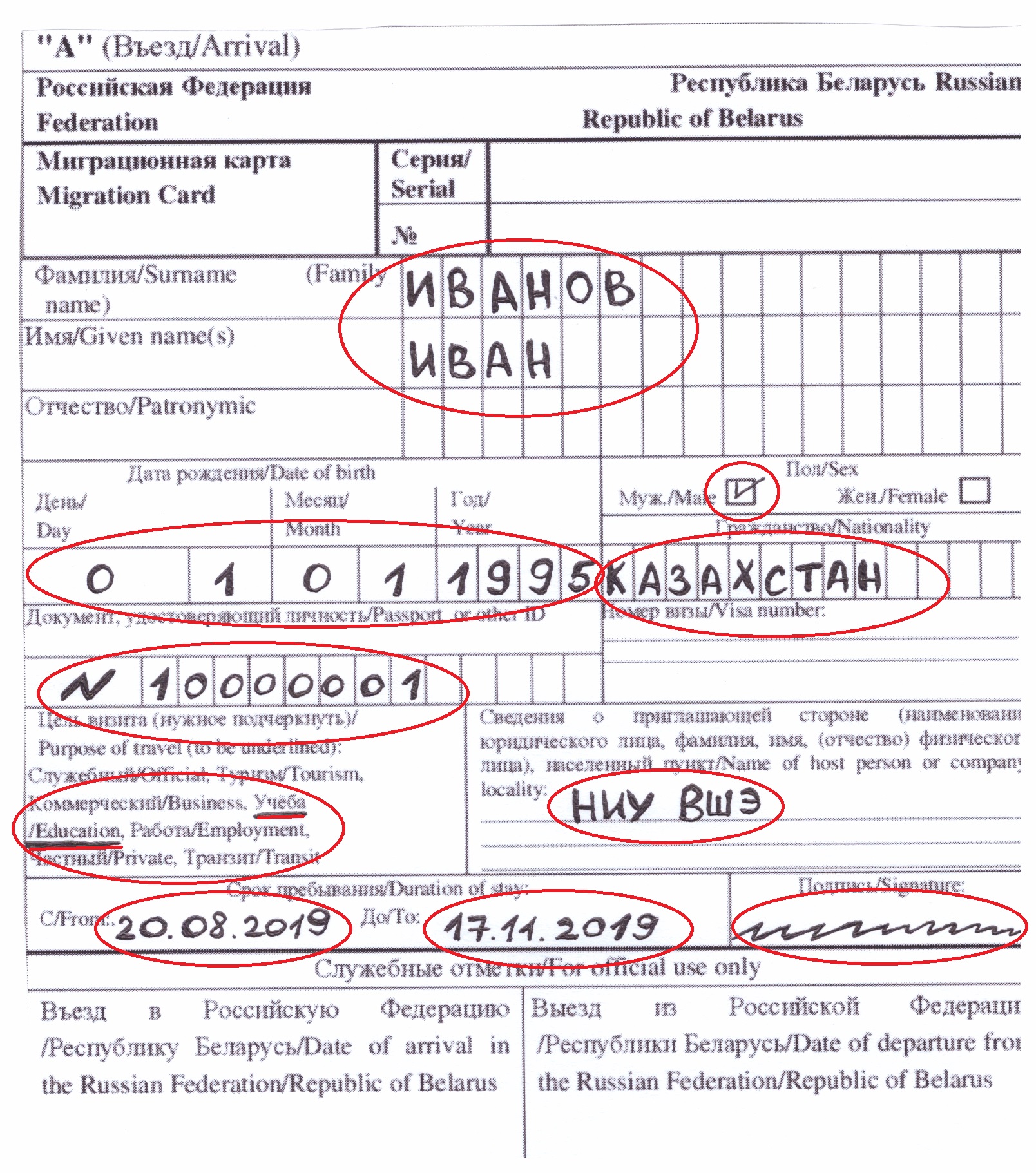Entering the Russian Federation and Border Crossings
♦ Border Control
All foreign citizens must go through border control procedures upon their arrival to the Russian Federation. To pass border control, you must have the following documents:
- passport;
- visa (if necessary);
- migration card.
♦ Migration Card
A migration card is issued to all foreign citizens (except for citizens of Belarus) upon entry to the Russian Federation and it confirms one’s legal stay in the country.
If foreign citizens arrive by air, the migration card shall be issued at the airport, at the border entry point.
If a foreign citizen arrives by train or car, he/she shall fill out the migration card themselves. He/she must specify passport details, dates and purpose of stay in Russia and other required information. If a foreign citizen does not speak Russian, the migration card may be filled out in the Latin alphabet as per his/her passport details. The completed form shall be presented along with other documents at the border control checkpoint.
IMPORTANT: It is important to pay attention to the correctness of the information, including the purpose of your visit (it must be indicated as ‘education’ - 'учеба')! Please carefully check your migration card’s details before you leave the border entry point.
How to fill in and read a migration card:
♦ Customs
In addition to border control procedures, all passengers disembarking from international flights must go through customs control. If a passenger is carrying an item that is subject to declaration, he/she needs to fill in a customs declaration form upon entering the Russian Federation. It is important to note that some goods are prohibited for transportation across the border of the Russian Federation. Such items may be seized at customs.
Please note that some types of medication and drugs may only be brought in if a traveler can present a respective prescription. The prescription must indicate that the drug is intended for personal use. Furthermore, the prescription should contain information about one’s health condition (syndrome), for which the prescription was issued, as well as information on the dosage and quantity of the drug. If the prescription is in a foreign language, it should be accompanied by a notarized Russian translation. For more information about importing drugs or medications, please contact the Federal Customs Service prior to your trip to Russia (telephone: +7 (499) 449-77-71; e-mail:fts@ca.customs.ru ).
You can find further detailed information about the procedures for moving goods across the customs border here.